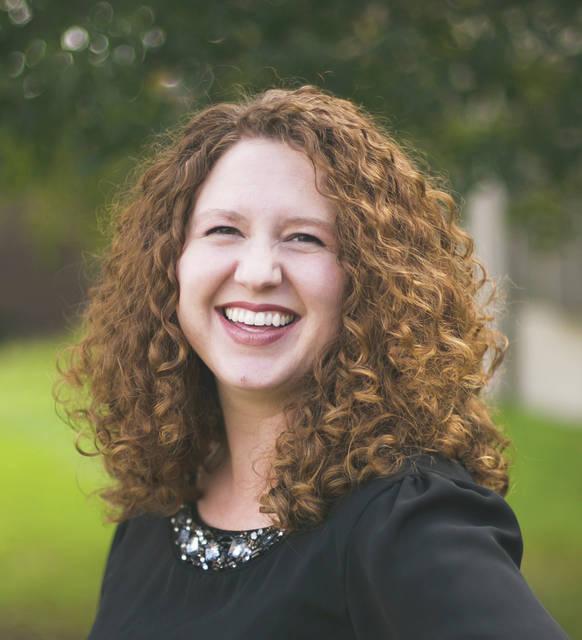
Voting and being engaged in democracy is a fundamental right in the United States. Voters have a direct impact on who is elected and the governmental change that come along with choosing an elected official. However, despite how important it is to maintain active voter registration status, only about half of all American citizens actively participate in the voting system, according to the Ohio Voter Project.
The Pew Research Center found in its 2011 study that seven out of 10 Americans believe that politicians don’t care what average Americans think and, once elected, don’t represent their interests.
To help encourage civic engagement and participation on a fun, local level, Soapbox Cincinnati and Freshwater Cleveland, with a grant from the Ohio State Bar Foundation, have created the Ohio Civics Essential Game Hour.
This one-hour evening of Jeopardy-style trivia is taking place in libraries across the state. Delaware County District Library will host our Civics Essential Game Hour at 7 p.m. Thursday, June 20, at our Main Library at 84 E. Winter St. We are lucky to have Judge David Hejmanowski, Delaware County Court of Common Pleas, Probate/Juvenile Division, as our emcee for the evening.
If you love trivia or games in general, bring friends and family for this fast-paced hour. Topics will include knowledge of Ohio’s General Assembly, the Ohio Governor’s Office and the Ohio Supreme Court. It will also have categories on the path to citizenship and more. People who like to study for a test (or trivia) can visit www.soapboxmedia.com/series/civics-essential-ohio.aspx for the Civics Essential features that ran last year on the Soapbox website.
The following organizations also helped make this event possible: The State Library of Ohio, Ohio Center for Law-Related Education, Cincinnati Development Fund, Capital Square Foundation, Solutions Journalism Network and Issue Media Group.
Citizens who lack fundamental civic knowledge can’t “really understand what’s going on in our government,” says Carol Seubert Marx, immediate past president of the Ohio State Bar Foundation board. Ultimately, she says, the foundation hopes that greater civic knowledge will lead to greater citizen involvement across Ohio. “If you really want to have an effect (on your community), you have to know how government works.”
I hope you’ll join us for a fun night of trivia on Thursday, June 20. To register you or your team’s attendance, search “OH Civics Essential Game Hour” on Eventbrite or head to our event calendar on the Delaware Library website, www.delawarelibrary.org/event.
Check out these titles that are new on our shelves in the History and Current Events genre.
• “Biased: Uncovering the Hidden Prejudice That Shapes What We See, Think, and Do” by Jennifer L. Eberhardt, PhD. Supplemented with research and the author’s own experiences with prejudice, this eye-opening work explores how readers can combat unconscious racial bias in their everyday lives.
• “Murder by the Book: The Crime That Shocked Dickens’s London” by Claire Harman. London, 1840: Penny dreadfuls are surging in popularity and are believed to be a corrupting influence on the city’s lower-class residents. When aristocrat Lord William Russell is brutally murdered in his home, is a book to blame?
• “The League of Wives: The Untold Story of the Women Who Took on the U.S. Government…” by Heath Hardage Lee. The forgotten story of the military wives who mobilized to bring their POW husbands home from Vietnam. After forming the National League of Families, the women organized media campaigns, lobbied politicians, learned encryption to send and receive coded messages (earning the nickname “Jane Bonds”), and even negotiated directly with the North Vietnamese. Book clubs will flock to this “unputdownable” tale (Library Journal) that “begs for discussion” (Booklist).
• “Girl in Black and White: The Story of Mary Mildred Williams and the Abolition Movement” by Jessie Morgan-Owens. Tells the story of how the photograph of seven-year-old light-skinned slave Mary Mildred Williams was used to stoke abolitionist ire. Brought onstage during Senator Charles Sumner’s 1855 antislavery tour, Mary’s white-passing appearance earned her the nickname “white slave” and garnered sympathy from audiences who otherwise ignored the plight of her darker-skinned counterparts.
• “The Trial of Lizzie Borden: A True Story” by Cara Robertson. A fast-paced account of the notorious 1893 Lizzie Borden murder trial that utilizes court transcripts, newspaper accounts, and recently discovered letters written by Borden herself to argue that the jury who acquitted her got it wrong.


